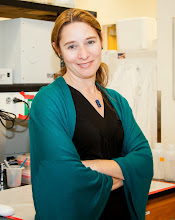In my last post I mentioned an upcoming pre-concert lecture I was giving at the San Diego Symphony. So, you might ask, how did it go, and what did I learn? More importantly, what can we all learn as we strive to improve our communication skills? In the weeks leading up to the talk I had focused on the organization that invited me, the audience, and the logistics. Let’s briefly rehash these areas here.
Bart Ziegler of the Capita Foundation had asked me to present a brief talk encompassing both my own journey in fish biology and fish communication (fish talking to each other!) and the hearing-related research that we do at the Bloedel Hearing Research Center here in Seattle. I was excited about the opportunity to share some science with the concert-goers, particularly the hard-of-hearing students invited by the Capita Foundation. I gave several practice talks for my coworkers and supervisors, which really paid off in the end. I received great feedback from both the Capita Foundation and the Symphony, letting me know I hit the right target set by the organizers.
More importantly, I seemed to hit the right target with the audience, which ranged from middle school students to retirees. How do I know I reached them? By the terrific and insightful questions they asked, showing that they understood the science and were curious for more. After the formal Q&A session I had a chance to speak further with several audience members as we stood in the lobby of the concert hall, and it was gratifying to see the smiles on their faces and the spark in their eyes-they got it!
Finally, the logistics went well, thanks in large part to the technical support staff at the Symphony. Despite all of our best intentions and communication prior to the talk, we had some difficulties connecting my Mac laptop to their AV system. We then tried an older PC laptop, which worked fine with my image slides but not with my movie clips. Luckily I had planned for this contingency and I had a set of still image slides to use in place of my videos. In the end the movies were used, this time on a borrowed Mac laptop from the Symphony conductor (his laptop had a different type of video connection). I had arrived 90 minutes prior to the start of my talk, giving us enough time to test each option as we arrived at satisfactory technical solution.
I think there are some important points here for all of us. 1) Communicate early and often with the event organizers to be sure we as speakers understand the goal of each talk and tailor our talk to their event. 2) Organize the talk with the audience in mind (what do they want to know?) and keep them hungry for more. It’s OK if they still have questions when we’re done! 3) Technology can be our friend, and we need to prepare for alternatives. Arrive early to deal with technology miscues and have a back-up plan ready to roll.
If you’ve read this post carefully (thanks faithful Communicatalyst fans!) you probably noticed that I’ve touched on several themes not yet covered in this blog, like Q&A sessions and practicing talks in advance. Stay tuned for more on these topics and others in future posts!

Nice post, Alli! The point about showing up early to work out technical issues is probably something that many might overlook. "Practice, yes. Communicate with organizers, sure. Show up early for techy stuff? Uh...but it's just supposed to work, right?"
ReplyDelete